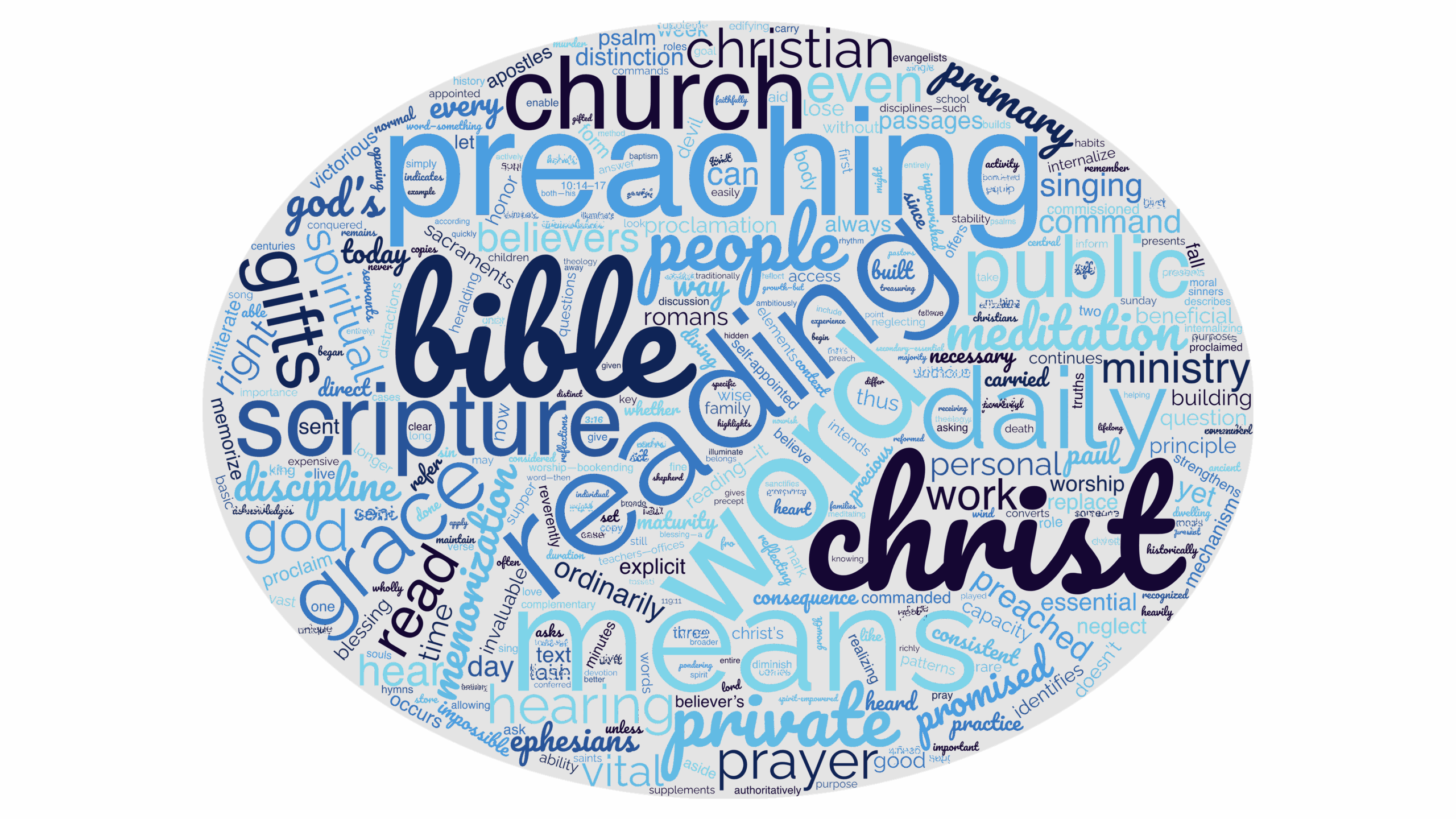How Important is Daily Bible Reading?

The Importance of Daily Bible Reading: Command, Means of Grace, or Christian Discipline?
Opening Prayer and Context
Before diving into our discussion, we began by asking the Lord to quiet our hearts and enable us to set aside the distractions of the week so that we might give ourselves wholly to the peace He offers.
Our Sunday School question this week continues from last time:
How important is individual daily Bible reading for a Christian?
Is it commanded? Can it be considered a means of grace? Do we lose anything by neglecting it? And is there a right way to do it?
To answer these questions, we’ll again look to Romans 10 and Ephesians 4, since both passages inform how God intends His Word to work in the life of His people.
The Distinction Between Preaching and Personal Reading (Romans 10:14–17)
Paul asks,
“How are they to believe in Him of whom they have never heard? And how are they to hear without someone preaching?”
This text highlights that faith comes by hearing, and that hearing occurs through the preached Word of Christ. While both public preaching and private reading are vital, Scripture indicates a clear distinction between the two.
The Central Role of Preaching
The Word that Paul describes here is not general Bible reading—it is proclamation. Preaching is an act of heralding, carried out by those who are sent. Verse 15 makes this explicit:
“How are they to preach unless they are sent?”
Thus, preaching is not a private or self-appointed activity. It is a commissioned ministry of the church, carried out by those gifted and recognized to proclaim the Word authoritatively. God has promised to work in a unique way through this means.
Distinct but Complementary
This doesn’t diminish private Bible reading; it simply acknowledges that the primary mechanism for hearing the Word of Christ and being built up in faith is the public, Spirit-empowered preaching of Scripture.
Personal reading is secondary—essential and edifying, but not the same as the public proclamation through which God ordinarily converts sinners and strengthens His people.
Christ’s Gifts to the Church (Ephesians 4:8–16)
Ephesians 4 presents Christ as a victorious King who, having conquered sin, death, and the devil, now gives gifts to His people. These gifts include apostles, prophets, evangelists, pastors, and teachers—offices through which the church is built up into maturity.
The Purpose of These Gifts
These ministers equip the saints “for the work of ministry, for building up the body of Christ.” The goal is unity, maturity, and stability in doctrine, “so that we may no longer be children tossed to and fro by every wind of doctrine.”
Hearing Christ’s Voice Through His Servants
Through these appointed means, believers “hear His voice” (cf. Romans 10). Christ continues to shepherd His people through those He has given to the church. Historically, this has always been the normal Christian experience, even when most believers could not read or own a personal copy of Scripture.
Bible Reading in Church History and Today
In the first centuries of the church, the vast majority of Christians were illiterate, and copies of Scripture were rare and expensive. Believers relied heavily on the hearing of the Word in public worship and on meditating on what they had heard.
Meditation and Memorization
Meditation, singing, and memorization have always played vital roles in the believer’s spiritual growth. Even today, when every Christian can easily access the Bible, the ancient practice of pondering and internalizing what we hear remains essential.
Thus, while daily Bible reading is an invaluable blessing, it is not the only means by which Christ sanctifies His people. He is able to work even where private access to Scripture is impossible.
Is Daily Bible Reading Commanded?
While Scripture commands us to love God’s Word, there is no direct command prescribing a specific form or duration of daily reading.
Passages such as “I have hidden Your word in my heart” (Psalm 119:11) point to the broader principle of storing up the Word—something that can be done through reading, meditation, memorization, singing, and prayer.
Good and Necessary Consequence
From the principle of knowing and treasuring God’s Word, it follows that daily reading is wise, beneficial, and in most cases essential. Yet it is a matter of good and necessary consequence, not an explicit command like “Do not murder.”
Daily Bible reading is a wise and vital discipline, but it does not carry the same moral weight as a direct precept.
Is Bible Reading a “Means of Grace”?
Traditionally, Reformed theology identifies three primary means of grace:
the Word (preached), the sacraments (baptism and the Lord’s Supper), and prayer.
Private reading, while spiritually beneficial, is not itself one of the instituted means through which grace is ordinarily conferred. Some refer to it as a private means of grace, and that’s fine so long as we remember the distinction.
In other words, Bible reading is a spiritual blessing—a precious aid to growth—but not the same as the public, covenantal means through which Christ has promised to nourish His people.
What Do We Lose If We Neglect It?
If we neglect Bible reading entirely and replace it with nothing, we are impoverished. But if we replace it with other spiritual disciplines—such as meditation, prayer, memorization, or reflecting on the preached Word—then we are still feeding our souls.
The key question is not whether you read daily, but whether you are actively receiving and dwelling on God’s Word.
Psalm singing, for example, is a powerful way to internalize Scripture, often allowing believers to memorize entire passages without even realizing it.
How Should We Read?
There is no single “right” method. Every believer’s circumstances and capacity differ. Yet three basic elements should mark our time in the Word:
- Pray – Ask the Spirit to illuminate the Word and apply it to your heart.
- Read – Take in the text carefully and reverently.
- Sing – Let “the word of Christ dwell richly in you” (Colossians 3:16) through psalms and hymns.
If 15 minutes a day is all you can do, then do that faithfully. Better to maintain a consistent rhythm than to begin ambitiously and quickly fall away.
For those with families, practice family worship—bookending the day with prayer, reading, and song according to the ability of those present. Even brief, consistent habits establish lifelong patterns of devotion.
Final Reflections
Daily Bible reading is a vital Christian discipline, but it is not the primary means through which God builds His church. That honor belongs to the preaching of the Word.
Private reading, meditation, and family worship are essential supplements to that public ministry, helping believers to store up, reflect on, and live out the truths they hear.
Christ is building His people through both—His Word proclaimed, and His Word pondered.


Leave a Reply